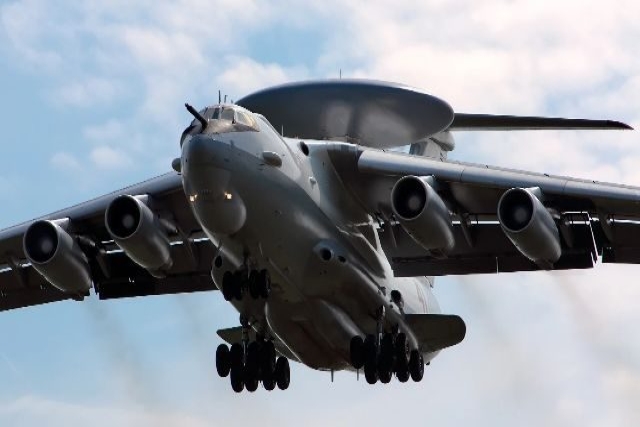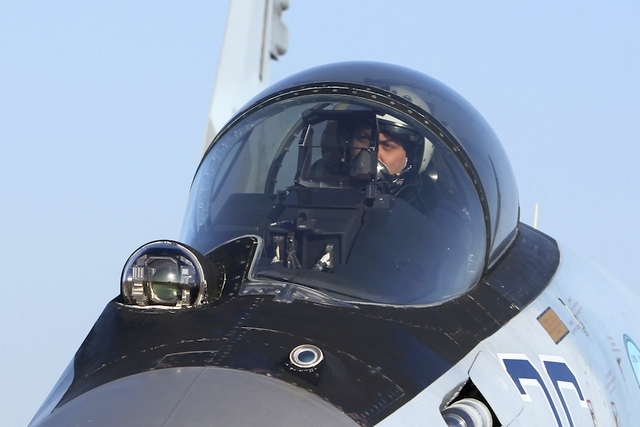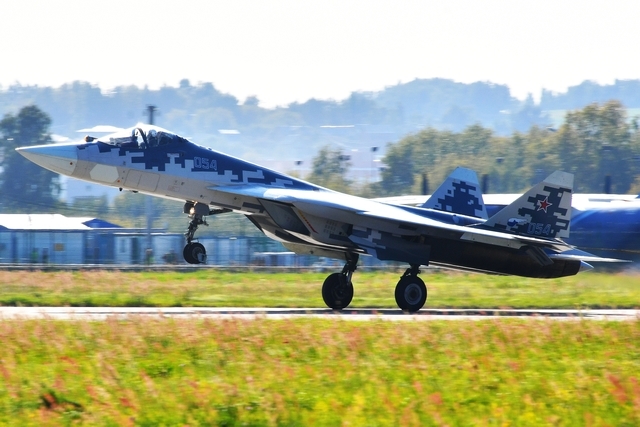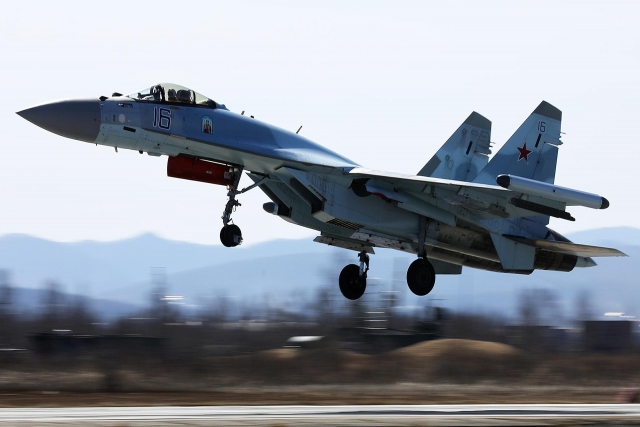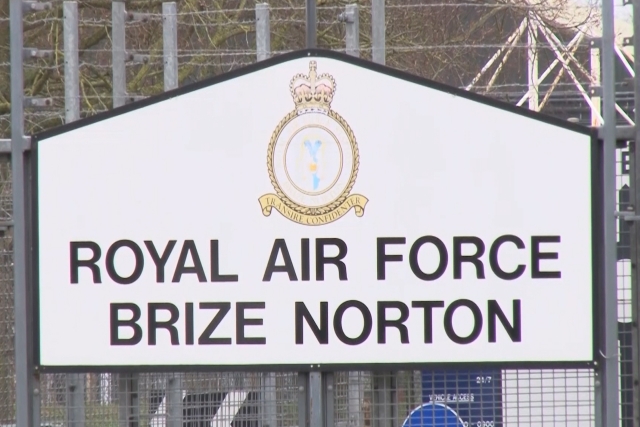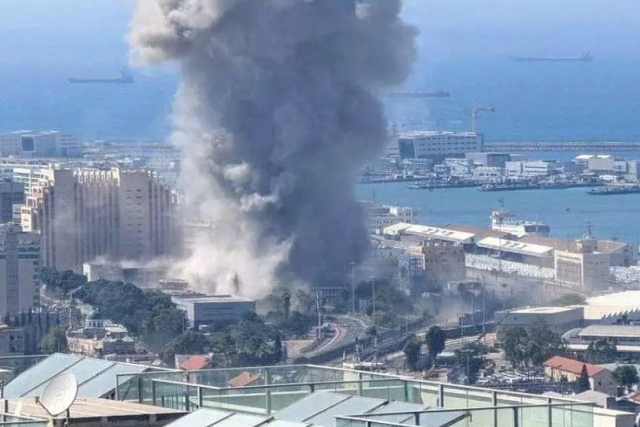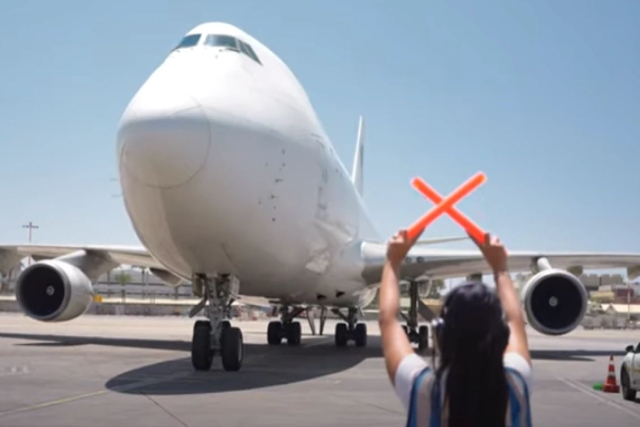Su-35 Fighter Takes on Airborne Radar Role in Ukraine Operations
Russian Su-35S jets now perform radar reconnaissance missions, stepping in for A-50 aircraft with long-range detection capabilities
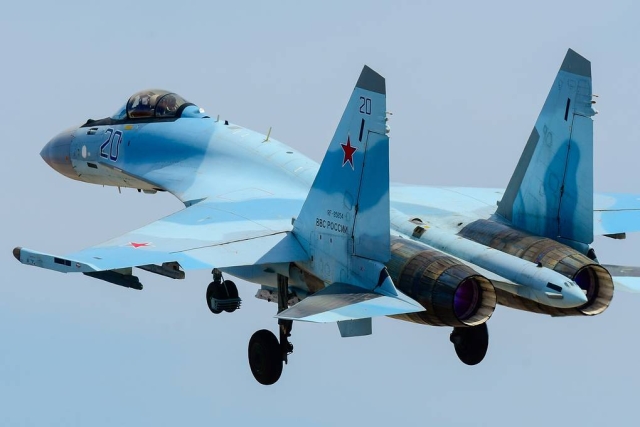
The Russian Su-35S fighter jet is being used for airborne radar reconnaissance missions, a role typically assigned to larger, specialized aircraft like the A-50.
This development was reported by the aviation-focused Telegram channel FighterBomber, which cited sources within Russia’s military aviation community. "The Su-35S has replaced the A-50, although forced to do so, confidently and vigorously. You can see the results in the news," the channel said.
This shift comes as Russia reduces the exposure of its A-50 fleet following multiple Ukrainian strikes. In January 2024, a Ukrainian SCALP missile downed one A-50 aircraft, and another attack targeted an airfield storing several others. From an original fleet of eight, Russia has reportedly lost at least one and is now flying these aircraft farther from the front.
In the meantime, the Su-35S—known in NATO terminology as the “Flanker”—is being used to fill the reconnaissance gap. The fighter is equipped with the N035 "Irbis" radar, capable of detecting targets up to 400 kilometers away and tracking up to 30 at a time. Unlike the A-50, the Su-35S can conduct real-time surveillance while retaining full combat capabilities, enabling it to operate as both an interceptor and a command-and-control platform.
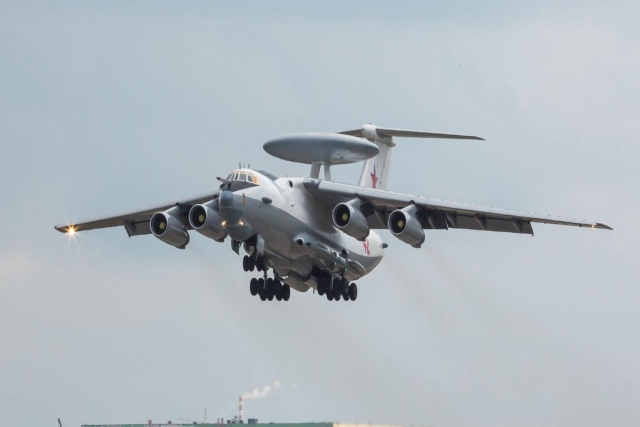
In July 2022, Rosoboronexport highlighted the jet’s ability to guide other aircraft during group operations and perform missions outside hostile air defense zones. "The Su-35 effectively fights ground (surface) targets, including without entering the enemy's air defense zone. In addition, the Su-35 is capable of controlling group actions of aircraft in the air, performing the functions of an airborne early warning and control aircraft," the company said.
Powered by the AL-41F-1S engine, the Su-35S can cruise at supersonic speeds and operate across extended ranges. Reports from defense analysts and Western publications like 19FortyFive have noted the jet's capability to perform some functions typically handled by AEW&C aircraft.
The change in tactics comes as the modernized A-50U AWACS aircraft reappeared over the Sumy region in March 2025 after nearly a year. The A-50U is equipped with the Shmel-M radar and infrared systems, enabling detection of threats like GBU-39/B bombs and ATACMS missiles up to 600 kilometers away.
The A-50U plays a key role in directing long-range missile strikes and supporting Russian air defense systems, including the S-350A Vityaz, Buk-M3A, and S-400. Analysts view the aircraft’s reactivation as a response to Ukraine’s evolving air capabilities and the arrival of Western-supplied F-16 fighter jets.
Ukraine has been attempting to track Russian AWACS operations using ground-based systems like Kolchuga-M and 80K6K1 Pelican, as well as aircraft-mounted sensors aboard Mirage-2000-5F and F-16AM fighters. Kyiv is also set to receive its first Saab-340 AEW&C aircraft, which will be integrated with F-16 fighters via NATO’s Link-16 tactical network for greater coordination with Western jets.
